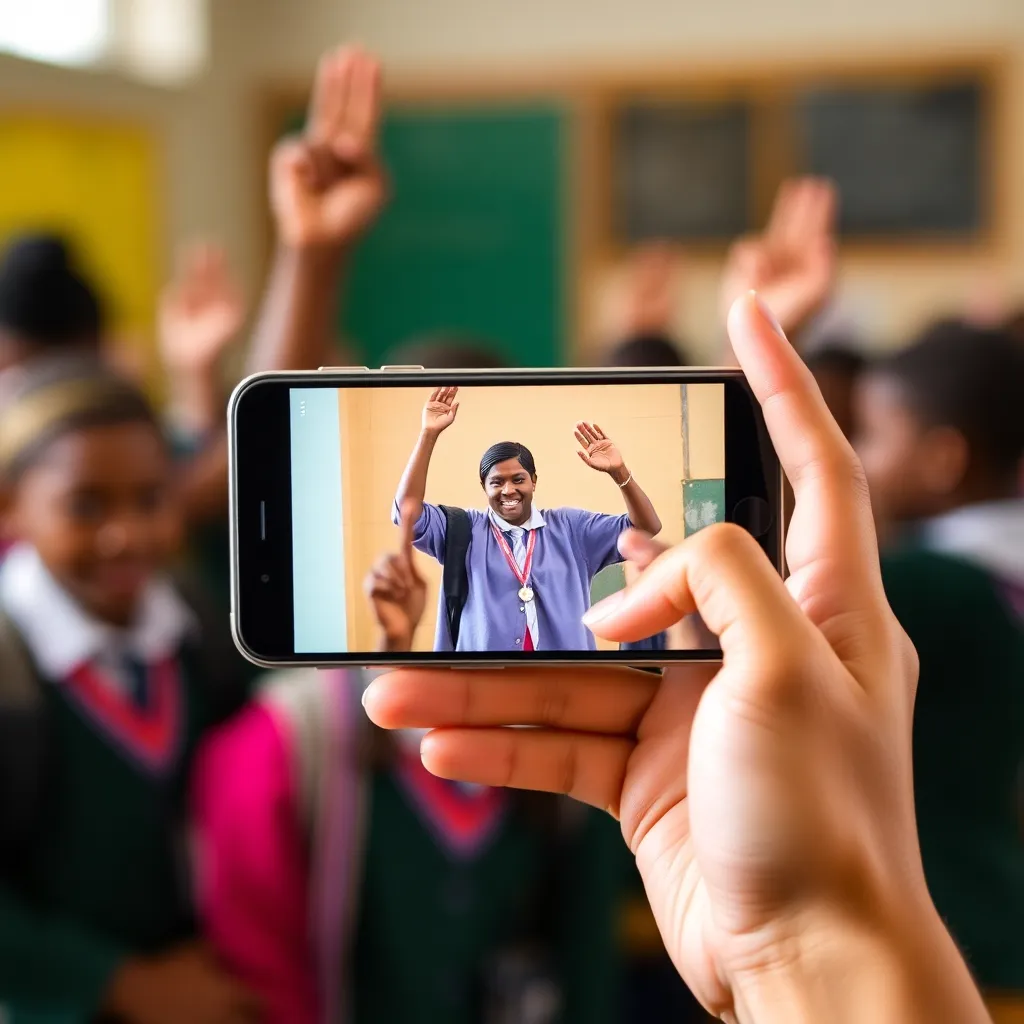Myrtle Beach Parent Praises Cell Phone Evidence After Daughter’s Controversial Disciplinary Action
In the bustling city of Myrtle Beach, South Carolina, a local parent has unearthed a fascinating tale of how a simple cell phone video played a pivotal role in overturning a school disciplinary decision involving her daughter. This incident comes at a time when the Horry County School District is poised to launch a ban on electronic devices in classrooms.
A Troubling Incident
Brittany Beaudet, a concerned mom, was distraught when her freshman daughter found herself embroiled in a classroom altercation back in October. The result? A transfer to SOAR Academy, an alternative school in Horry County. Initially, Beaudet found the disciplinary action bewildering, particularly after police involvement indicated that her daughter was merely defending herself.
“I wasn’t really sure why she was sent to the alternative school at that point, because the police that were involved with the incident at the time said it was self-defense on her part. So that was concerning to me,” Beaudet recalled.
An Unexpected Twist
After the first attempt to appeal the school’s decision ended in disappointment, the Beaudet family found hope at a recent Horry County School Board meeting. The hearing took an unexpected turn when video footage from a cell phone was presented. “They decided to overturn the decision after seeing video evidence of everything, and just all of the evidence that had come from all the hearings,” Beaudet stated with a sigh of relief.
According to Beaudet, this video was *crucial* in proving her daughter’s innocence. “It totally showed what happened in that situation. And the video was completely different from the witness statement from the actual other party. So the video, I have to believe it helped my daughter. And it showed that she was not an aggressor,” she emphasized.
The Importance of Evidence
Beaudet couldn’t help but feel grateful to whoever captured the moment on camera. “I’m thankful that somebody did have a camera out at that time because otherwise, we would have never known. And my daughter would still be out there at the alternative school and being punished for defending herself,” she reflected.
However, even as she celebrated her daughter’s return to her regular school, Beaudet raised a significant concern about the impending electronic device ban. “I’m not disagreeing with that. But what I have a problem with is the fact that now you have these classrooms where if another student was to go through what my daughter went through, where’s the proof going to come from?” she questioned, highlighting the potential ramifications of limited evidence in future incidents.
The Electronic Device Ban
The Horry County School District is on the cusp of implementing a *strict ban on student cell phone use*, part of the newly introduced initiative known as “Free to Focus.” This policy comes as a result of legislation passed by the South Carolina House and Senate, which lays down specific requirements for school districts, including prohibiting personal electronics during the school day.
According to the new decree, failure to comply could lead to serious consequences such as the denial of taxpayer-funded scholarships or legal challenges. As the clock ticks down to the official launch of this ban next month, many are eagerly watching how the policy unfolds across various school districts.
Conclusion
This story resonates with many as it sheds light on the increasingly complex relationship between technology and education. As cell phones become both a vital tool for communication and a source of potential conflict, the challenge remains—how do schools maintain order while still allowing students to present evidence when needed?
As Brittany Beaudet’s case illustrates, having access to technology can sometimes make all the difference in ensuring justice is served in the school environment. One can only hope this serves as a cautionary tale for school districts as they move forward with their new policies.







